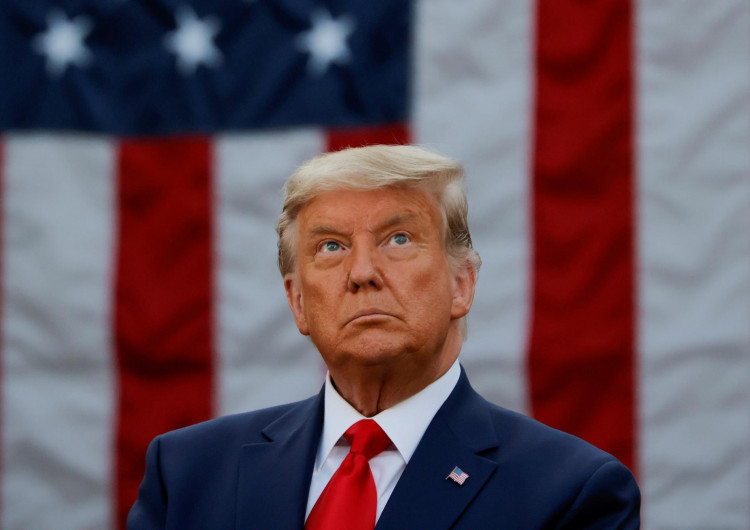In a recent episode of "Jimmy Kimmel Live!", host Jimmy Kimmel humorously addressed the ongoing rivalry between former President Donald Trump and pop music icon Taylor Swift, highlighting Trump's apparent envy of Swift's widespread popularity and the fervent dedication of her fanbase, known as "Swifties". Kimmel's monologue, delivered on Wednesday, January 31, took a light-hearted yet pointed look at the political and cultural clash between the conservative movement and the entertainment world.
Kimmel opened his commentary by responding to reports suggesting Trump's belief that his supporters, dubbed "Trumpers," exhibit a loyalty surpassing that of Swift's fans. The late-night host playfully speculated on the outcome if Swift were to mobilize her followers in a political context, suggesting, "If Taylor Swift told her fans to storm the Capitol on January 6th? They would have succeeded; they would be running the country right now."
Delving deeper, Kimmel questioned the basis of Trump's fixation with the pop star, noting the peculiar nature of comparing political rallies to concert attendances. He highlighted the stark disparity in the scale of their respective events, jesting that a Trump rally at SoFi Stadium in Los Angeles would struggle to fill seats, whereas Swift could effortlessly command a full house, with fans willing to pay a premium for the experience.
Kimmel's critique extended beyond domestic borders, challenging Trump's global appeal by comparing it to Swift's international stardom. He humorously doubted Trump's recognition in cities like Tokyo, Singapore, and even Gelsenkirchen, Germany - a nod to Swift's upcoming performance at a soccer stadium there, emphasizing her global fanbase.
In a tongue-in-cheek manner, Kimmel continued to juxtapose Trump's public persona with Swift's cultural impact, even suggesting that Swift's presence at a football game would attract more viewers than the sport itself. He quipped, "Taylor Swift is so popular, people want to watch her watching a football game."
The segment took a more satirical turn as Kimmel playfully downgraded Trump's popularity, comparing him unfavorably to the fictional character Donald Duck, known for his distinctive speech impediment and lack of trousers. This comparison served to underscore the perceived absurdity of Trump's insecurity over Swift's influence.
Concluding his monologue, Kimmel humorously predicted that Trump's undoing might not stem from his numerous controversies or political missteps, but rather from the collective might of "an army of pissed-off Swifties."
He even alluded to Swift's discography, suggesting that many of her songs could be fitting anthems for Trump's current predicaments, with titles like "Don't Blame Me," "You Need to Calm Down," and notably, "Me," which Kimmel singled out as potentially resonant with the former president.
Kimmel's commentary reflects a broader trend among late-night hosts, who have seized on Trump's remarks about Swift to craft comedic narratives that highlight the intersection of politics, celebrity culture, and fan dynamics. This ongoing dialogue between the political and entertainment spheres continues to captivate public interest, underscoring the unique role of late-night television as a platform for satirical commentary on contemporary issues.






